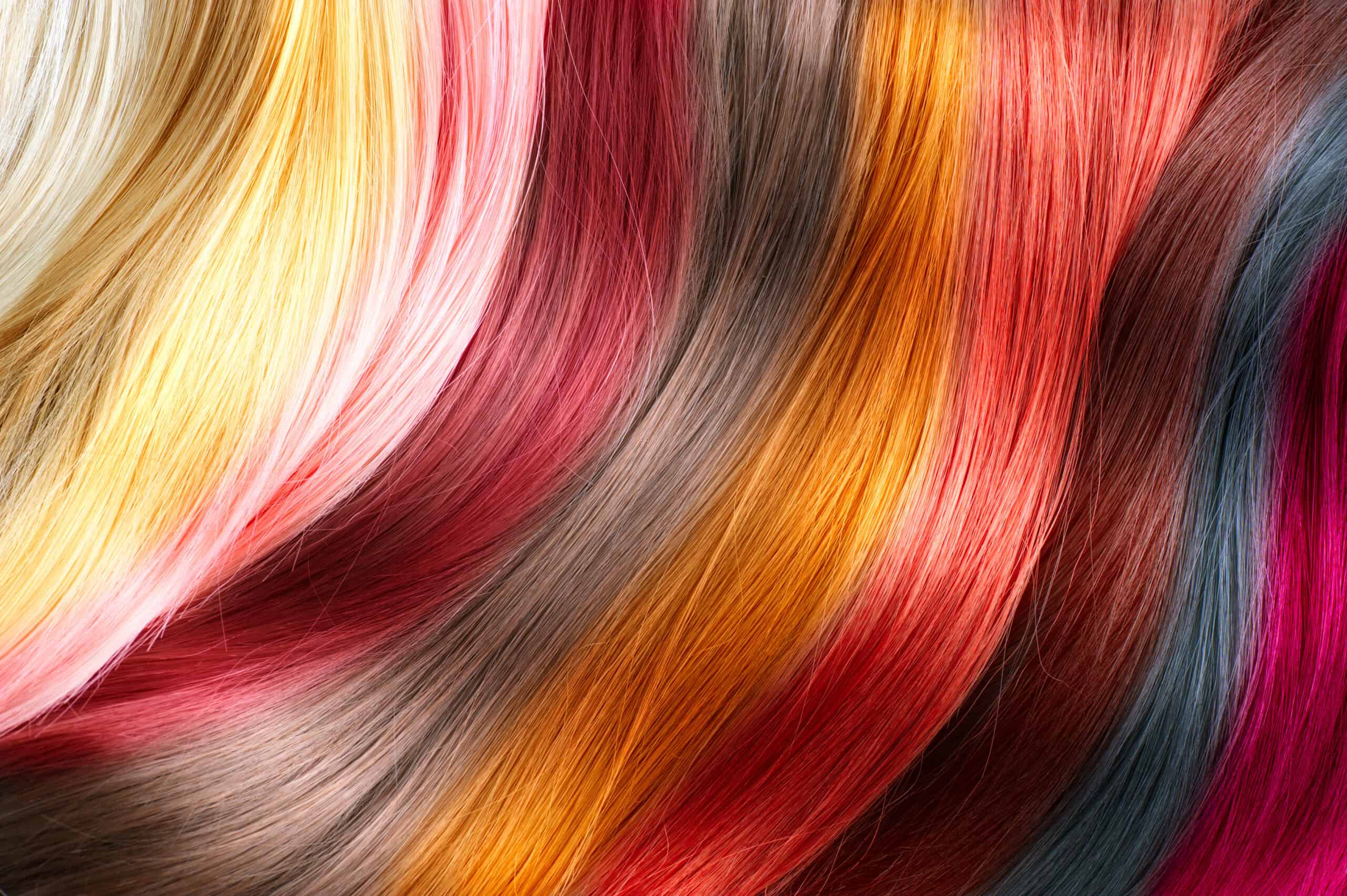A salt water pool contains both salt and chlorine as we’ve discussed previously on this website. So if you thought that a salt water pool isn’t a chlorinated pool, you are mistaken.
A salt water chlorinator converts dissolved salt (NaCl) into chlorine by way of a process called electrolysis. As such, your hair can be affected by the water in your pool and not just from the salt.
Your hair color can be lightened by prolonged exposure to salt water along with chlorine and direct sunlight so there is more than one reason your hair color might be impacted when swimming in a salt water pool.
So when you swim in a salt water pool, your hair and body comes into contact with a low level of salt and a similar level of chlorine that you’d find in regularly chlorinated pools. The difference is that the chlorine produced doesn’t leave your body and swimsuit smelling like chlorine.
The question is…What does swimming in a salt water pool do to your hair if it has been dyed? Can you even swim in a salt water pool with dyed hair and what may result?
We already discussed whether or not salt water can turn your hair green so let’s take a closer look at how salt water and the chlorine in the water can effect dyed hair in general.
How does swimming in a salt water pool impact your dyed hair?
When you swim in a salt water pool, you’re potentially lightening your hair in up to three ways:
- The salt in the water can lighten your hair.
- The chlorine in the water can lighten your hair since it’s an oxidizer similar to a bleach.
- The direct sun on your hair can also lighten the color over time.
For those who are looking at lightening their hair color naturally, some hair professionals recommend using salt water in combination with direct sunlight for a period of time so you might experience lighter hair unintentionally just by swimming and staying in the sun.
Salt water can weaken hair strands and can cause them to break. Exposure to the UVA and UVB rays from the sun can also damage hair in the form of discoloration, split ends and breaking among other things.
Once you’re done swimming in a salt water pool, it’s a good idea to have a shower and wash your hair as you normally would to remove salt and any other chemicals your hair (and body) have accumulated while swimming.
Alternatively you can also wear a cap or hat to protect against both salt water and sun exposure.
Can you go in a salt water pool right after dying your hair?
Hair dye manufacturers and hair pros tell you to avoid a number of things immediately after dying your hair including sun and chlorine exposure, getting your hair wet and exposure to chemicals. Swimming in a salt water pool literally exposes your hair to each of these.
Remember: A salt water pool is a chlorine pool and has chlorinated water just like other pools. The salt chlorinator produces the chlorine rather than having it manually added in chemical form. That’s the difference.
Chlorine is similar to bleach except that chlorine is stronger and is a natural product. Cl is the chemical symbol and it’s number 17 on the atomic chart. Bleach is a man-made product consisting of chlorine and other chemicals.
So if you’re going swimming in a salt water pool after dying your hair, don’t get your hair wet and wear a hat or other option to avoid direct sun exposure.
Does salt water fade hair color?
As mentioned above, the salt in your pool water along with chlorine and other chemicals along with direct and prolonged exposure to direct sunlight can all contribute to fading of both dyed and natural hair color.
Additionally, it can damage your hair in other ways i.e. breakage, split ends, frizzing, etc.
If you’re trying to avoid damaging or discoloring your hair while swimming in a salt water pool – or any body of water for that matter, your best choices are:
- Wear a hat or other head covering like a swimmer’s cap.
- Don’t get your hair wet.
- Use a hair product with UV protection built in.
- Wash your wash immediately after you finish swimming to rinse out salt and other pool chemicals.
Summary
When swimming in a salt water pool, you are potentially exposing your hair to salt water, chlorine, direct sunlight and other pool chemicals that can lighten and weaken your hair strands. This can negatively impact your hair health in general and can also lighten the dye in your hair.
Your best bet when swimming in a salt water pool is to avoid getting your hair wet and to wear a head covering to protect against the UVA and UVB rays of the sun if you’re concerned about hair dye and discoloration.
If you do get your hair wet, wash your hair after swimming as you’d normally do to rinse out the salt and other chemicals which can attach themselves to the strands of your hair and cause discoloration and other damage.

